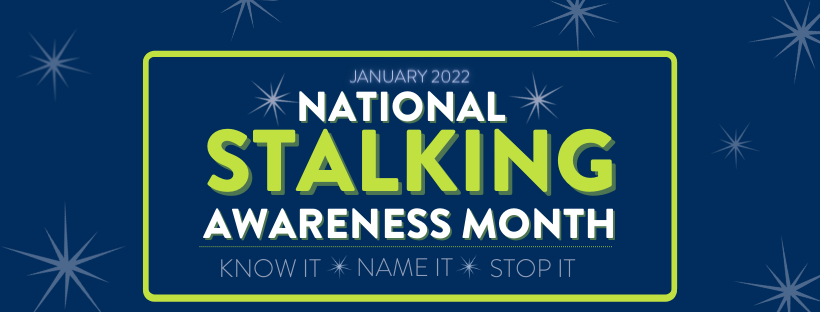January is Stalking Awareness Month.
Being stalked is a frightening and traumatic experience. SPARC reports that stalking victims suffer much higher rates of depression, anxiety, insomnia, and relationship issues than people in the general population.
One thing you as a community member can do is become an ally for those who are experiencing stalking. Offer to assist them in finding resources or accompany them to local law enforcement to seek a protection order. Reinforce that they deserve to be in a healthy relationship where personal boundaries are respected.
If you are being stalked, know that there is help. You can reach out to the advocates at your local Domestic violence shelter. You can call the Ohio DV Network at 800-934-9840
https://www.stalkingawareness.org/wp-content/uploads/2019/01/SPARC_StalkngFactSheet_2018_FINAL.pdf
A healthy relationship is one in which there is no abuse or stalking behaviors. In the same way that these can cause negative mental health impacts and trauma, improving our relationships and maintaining healthy ones are some of the most important and powerful ways to improve mental health. Healthy relationships have a foundation built upon trust and honesty
IN a healthy relationship Trust comes easily and you don’t have to question the other person’s motivation. They respect your privacy and would never put you through a “test” to prove your loyalty.
In a healthy relationship, you should feel like you can share the full truth about your life and feelings with each other – you don't have to hide things. Your partner may not like what you have to say, but will respond to disappointing news in a considerate way.
Healthy relationships also promote independence and mutual respect. In a healthy relationship, Your partner supports your hobbies and your relationships with other friends, family and coworkers–and in fact encourages them! Having independence means being free to be yourself and giving your partner that same freedom.
You value one another’s interests, beliefs and opinions. You feel comfortable setting boundaries and are confident that the other person will respect those boundaries. A healthy partner is happy for you when you achieve something, and supports your hard work and dreams. This support also applies to your personal interest, hobbies, and the things that make you you and make you happy. Encouragement and fun are a part of your relationship, and kindness becomes a two-way street. The other person will do things they know make you happy and you will show compassion for the other person and the things they care about and do for you.
A healthy relationship should feel easy and make you happy. You can let loose, laugh together, and be yourselves — the relationship doesn’t bring your mood down but cheers you up. No relationship is fun all of the time, but the good times should definitely outweigh the bad
All of these relationship qualities amount to an equitable partnership. The relationship feels balanced and everyone puts the same effort into the success of the relationship. You don’t let one person’s preferences and opinions dominate, and instead, you hear each other out and make compromises when you don’t want the same thing. You feel like your needs, wishes and interests are just as important as the other person’s. Sometimes you might put in more (money, time, emotional support) than your partner, and vice versa, but the outcome always feels equitable and even.
https://www.joinonelove.org/signs-healthy-relationship/
-Jerry Strausbaugh, EdD, LPCCS, Executive Director







